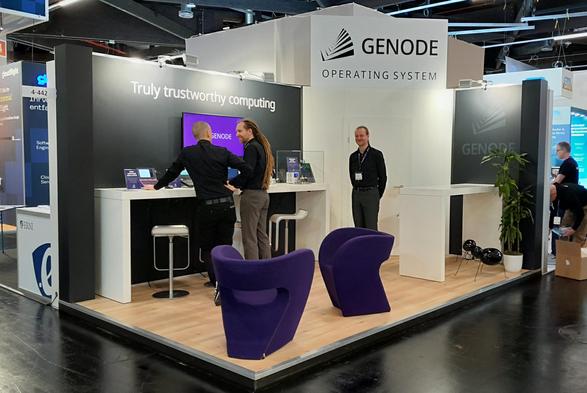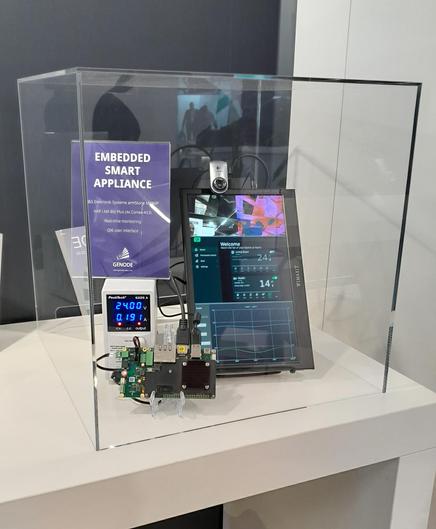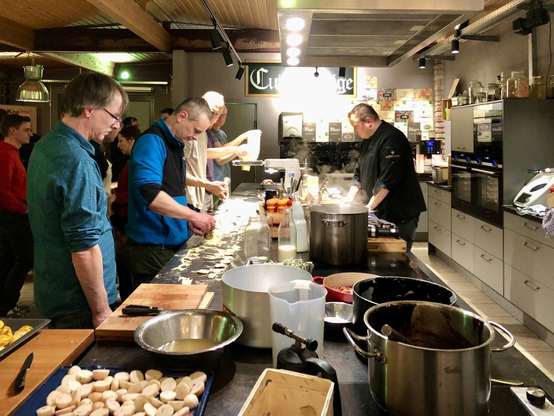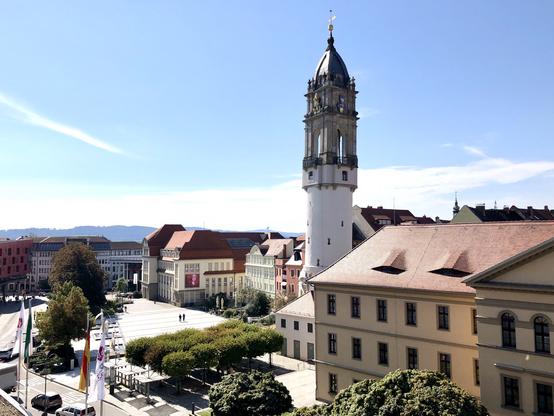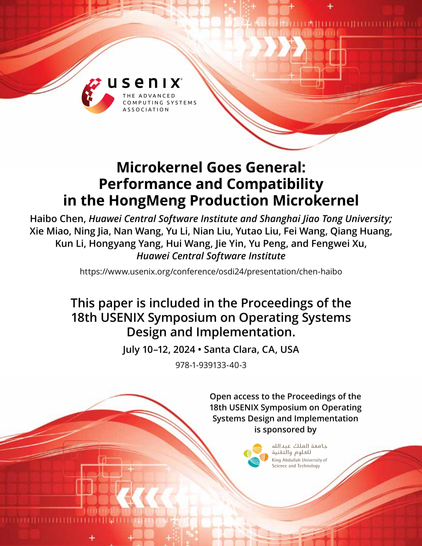@saidmgani That is indeed worth exploring some future boring day :) And I actually see this as a major benefit of AI: I would honestly never bother a real (human) artist with such an assignment. But it's OK for an AI ;)
computer science researcher, co-author of the HelenOS microkernel multiserver OS, passionate programmer, F/OSS advocate, IT specialist, feminist, employee of Kernkonzept GmbH
@blitz Indeed, if we consider the number of user-facing deployments in the wild, Fuchsia is a major player, probably only rivaled by HongMeng. Other microkernel-based OSes might have a deployment base of a similar magnitude (for example, remember that Intel ME is based on MINIX 3), but it is usually an embedded deployment.
Technically, Fuchsia is surely an interesting project that implements some nifty ideas.
Unfortunately, the development of Fuchsia is, for the lack of a better word, murky.
Formally speaking, it is an open source project with open governance on paper and a roadmap (well, so far only for 2024 :)). But practically speaking, the Fuchsia developers don't participate in community events, they don't participate in industrial events, they don't talk at conferences, they don't organize meetups, they don't publish papers, they don't publish blog posts, they almost don't advertise it, they rarely publicly announce anything, etc. Probably the singular most in-depth technical talk about Fuchsia [1] has been organized at my Alma Mater mostly thanks to the fact that one of the lead developers is our former student. The second and third most in-depth talk were similar stories. All these talks have been attended by a handful of enthusiasts and the unlisted YouTube recording of the first talk [2] has been viewed by a whopping 38 viewers :)
It almost seems like Google simply does not want Fuchsia to actually become mainstream :) Due to this, I don't think that Fuchsia is currently the best "poster child" for microkernels. Despite its technical merits.
[1] https://d3s.mff.cuni.cz/files/teaching/nswi161/2022_23/08_fuchsia_system_interface.pdf
[2] https://www.youtube.com/watch?v=b-qYcoQHel4
@blitz A very interesting write-up that definitively deserves a longer discussion. Thanks for it!
But I must say that I don't share your pessimism. While there are certainly some people in our microkernel community who show textbook symptoms of the Not Invented Here syndrome (or even worse, the Smartest Person in the Room syndrome), the majority of our microkernel community members is actually very open-minded, supportive and welcoming.
I strongly believe that the "microkernel idea" is so important that it should be pushed forward regardless of the actual implementation. And I will be always ready to support any such effort, even if it is not based on my favorite pet project or design. On the other hand, the diversity is also important. Customer-specific use cases are the bread and butter of almost all of the current real-life deployments of microkernels.
So why is there no single major mainstream microkernel OS that everybody would stand behind? There might be one eventually. But, frankly, I don't see a real reason why it must be like that.
I mean, while the NT, Linux and XNU kernels dominate the market share, there are dozens of major OSes (distributions) based on Linux, plus all the *BSD clones and others. Saying that there is just Windows or just GNU/Linux and everybody is standing behind them is an oversimplification.
There are dozens of major systems programming languages. There are dozens of major web application frameworks. There are dozens of major content management systems. Build automation software? GUI frameworks? The same story everywhere. So why the much higher bar for microkernels? :)
In January, I've presented a lightning talk reviewing a few amazing events in the domain of microkernel-based operating systems in 2024. It was a great year and let's hope that 2025 will be even better. Did I miss anything important? #microkernel #operating #systems https://www.slideshare.net/slideshow/2024-in-microkernels-a-year-in-review-lightning-talk/275774446
Here are the slides from my status update talk about #HelenOS from the #Microkernel devroom at @fosdem 2025. It was an honor to participate in the devroom again and meet the members of other microkernel-based projects. It is an institution. Many thanks to Udo Steinberg and Alexander van der Grinten for the flawless organization! https://www.slideshare.net/slideshow/helenos-20-years-of-history-20-years-of-future-vision/275310178
The 25th @fosdem, with more attendees than even. It's great to be back again! #fosdem #fosdem2025
Christmas party cooking 👨🍳 You are what you eat 😋 #christmas #party #kernkonzept
After some time of neglect, I've finally done a major update of the list of open-source microkernel-based OSes at https://microkernel.info/
It shows that we have a very lively community. #microkernel #foss #oss #os
@Oskar456 Thanks! That makes some (practical) sense.
@Oskar456 Is there a rationale for the rule?
A 14-year tradition goes on: There will be a Microkernel and Component-Based OS Devroom at FOSDEM 2025 (@fosdem), this time kindly organized by Udo Steinberg. Please see the CfP: https://fosdem.microkernel.info/ #microkernel #fosdem
🤦♂️
Dream Theater with Mike Portnoy again!
In 1969, seeing the Saturn V launching to bring two astronauts to the surface of the Moon, only 65 years since the first controlled powered airplane flight by the Wright brothers, must have felt like living is a science fiction. In 2024, seeing the 220-ton Super Heavy being smoothly captured by the Mechazilla feels like living in a science fiction for our generation. #spacex #superheavy #mechazilla #space
Kernkonzept off-site in Bautzen. It’s not a bad photo, the tower is actually leaning 😅
Three recommendations to remember and the conclusion of the seminal paper [1] on OS design and implementation:
* "Deploy first, then optimize continuously."
* "Use automated verification as much as possible."
* "Big kernel lock is not scalable in emerging scenarios."
"HongMeng is a commercialized general-purpose microkernel that retains microkernel principles while providing structural supports to address compatibility and performance challenges in emerging scenarios. It also facilitates future exploration of microkernels’ benefits in production. For instance, its flexibility offers opportunities to accommodate the increasing hardware heterogeneity that Linux fails to address, and to achieve fault tolerance for improving availability."
[1] Haibo Chen et al.: Microkernel Goes General: Performance and Compatibility in the HongMeng Production Microkernel, in the Proceedings of the 18th USENIX Symposium on Operating Systems Design and Implementation, https://www.usenix.org/system/files/osdi24-chen-haibo.pdf

